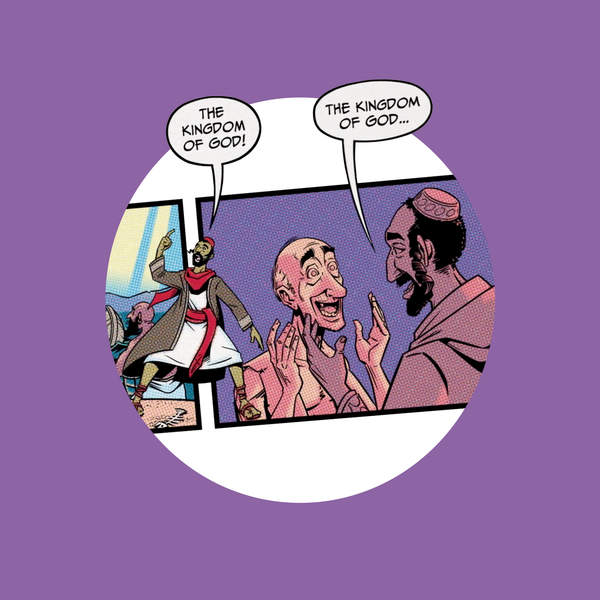
The Mountain Garden and the Human Ideal
Episode Chapters
Show Notes
In the first part of the show, the guys quickly review some common metaphors used in our everyday language. “Time is money,” “life is a journey,” etc. Tim quotes again from George Lakoff saying that in every metaphor, there are elements contained within a metaphor. For example, in the “life is a journey” metaphor, there is embedded vocabulary like viewing people as “companions” and viewing obstacles as “bumps in the road.” Tim posits four main metaphors in the Bible: God is a dryland/mountain/rock. Waters are danger/evil/chaos. Humans are either at peace or at war with animals. The Garden of Eden river and the Tree of Life. In part two, the guys begin to break down the first metaphor listed above. Why is God thought of as “dryland?” To find out, Tim and Jon dive into Genesis 1 and 2, outlining creation. Tim says the imagery found later in the Old Testament is rooted in imagery in Genesis 1 and 2. For example, in Genesis 15, “you plant them in the mountain of your inheritance” shows that the Hebrews viewed their cosmic mountain Garden of Eden as paradise, and the Jewish temple is considered the symbol of paradise, which is man in communion with God. Jon makes a comment about a Fuller Projection map. This is an alternative geographic map of the world that lays out the continents in a different order. The guys discuss how different points of view lead to different thoughts and imagery used in a person’s worldview. In part three, Tim outlines the imagery in Joel 2 and Psalm 48. Here the writer(s) uses some of the imagery originally found in Genesis (holy hill, holy mountain, citadels, the city). Jon asks how critical the imagery of God as a rock/fortress/refuge is in the Bible. Tim points out that these images are fundamental to the Hebrew worldview. To prove his point, Tim does a quick word search and finds 78 hits of the words rock, fortress, and refuge in just the book of Psalms! Tim crystalizes the thought by saying the ideal state of humanity is in a relationship with God, working in a stable garden that acts as a fortress or mountain in which all of humanity can securely dwell.
Produced By:
Dan Gummel, Jon Collins
Scripture References
Referenced Resources
- "Seeing the Psalms: A Theology of Metaphor" by William Brown
- Fuller Projection of Globe
Check out Tim's library here. You can experience our entire library of resources in the BibleProject app, available for Android and iOS.

